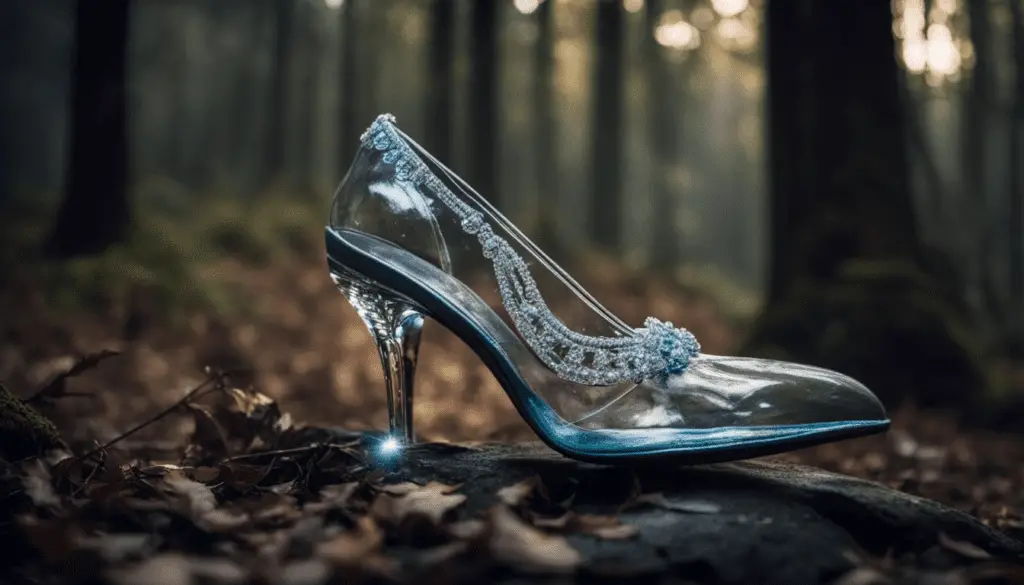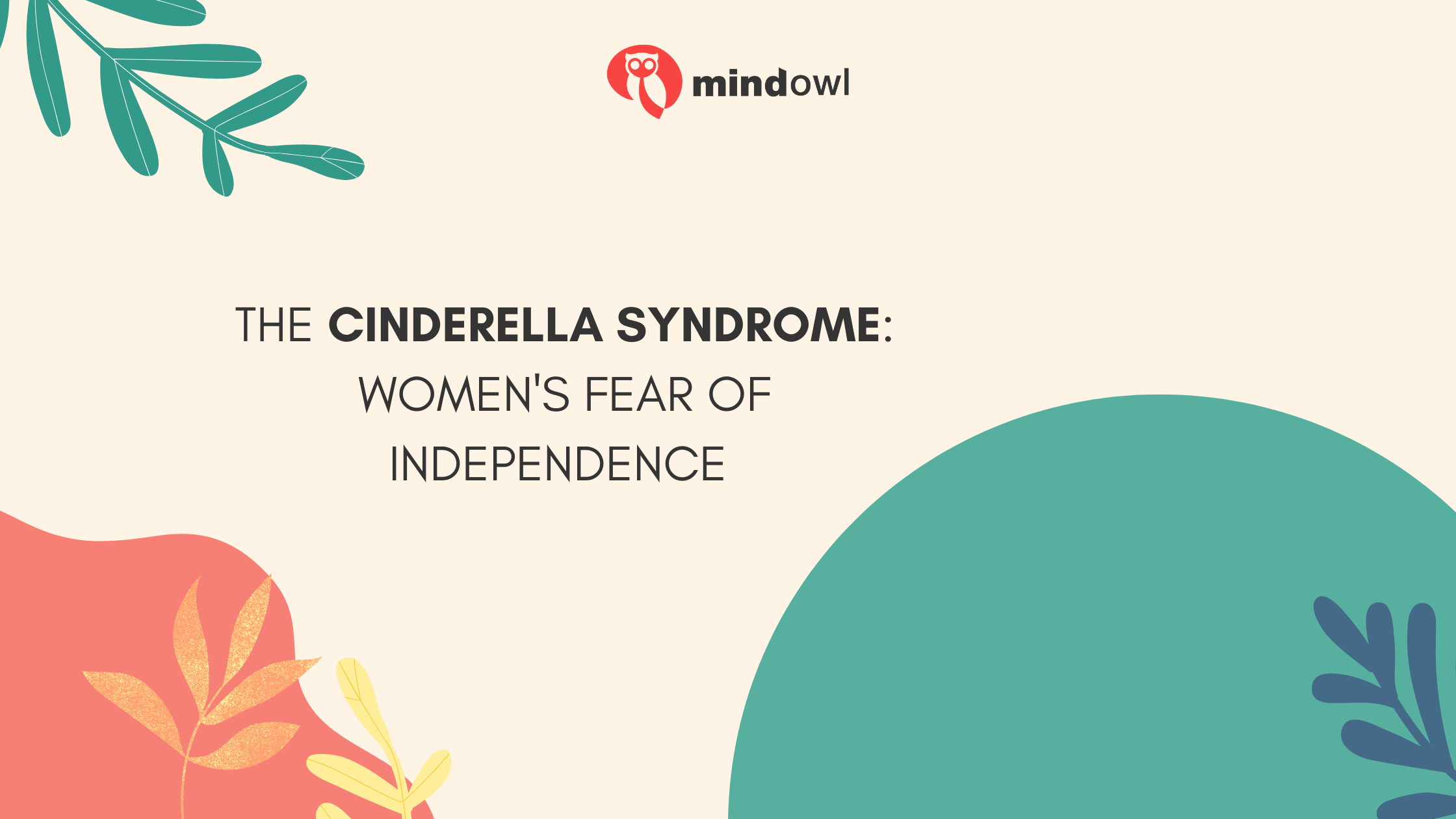Finding oneself constantly daydreaming about a knight in shining armour or a fairy-tale ending isn’t just for the storybooks. In reality, it points towards something much deeper – a phenomenon known as the Cinderella Syndrome.
This intriguing condition touches more lives than we might think, with many not even realising they’re living under its shadow.
Colette Dowling‘s groundbreaking book in 1981 shed light on this very topic – revealing that many women harbour a fear of stepping into their full independence. Our article will help you peel back the layers of the Cinderella Syndrome, understanding its roots and how to boldly face the path to true independence.
Key Takeaways
- Colette Dowling wrote a book in 1981 about Cinderella Syndrome, showing many women fear being independent.
- Signs of the syndrome include low self-esteem, anxiety over decisions, and relying on others for help.
- Women with this condition often wait for a “knight in shining armor” because they grew up thinking they needed someone to save them.
- To beat Cinderella Syndrome, women should push for independence and challenge old gender roles.
- Making your own choices and building a future based on what you want can lead to true happiness and fulfilment.

Understanding the Cinderella Syndrome
Origin and Definition
Colette Dowling brought the Cinderella syndrome into the spotlight in 1981 with her seminal book. She examined women’s hidden fear of independence, describing it as a psychological condition where there exists an unconscious desire to be taken care of by others.
Dubbed the Cinderella complex, this term captures the essence of waiting for a “prince” or rescuer to ensure safety and security, rather than pursuing self-sufficiency.
The definition crystallises around dependency—a yearning not just for financial support but emotional shelter too. It’s about adults, especially women, feeling fundamentally incapable of navigating life’s challenges without external rescue.
Despite advancements in gender equality and societal roles, the complex remains prevalent, underscoring an embedded cultural narrative that success and happiness depend on another person’s intervention.
Common Warning Signs
The Cinderella Syndrome sneaks up quietly, but its signs are clear if you know what to look for. Every woman who finds herself leaning too much towards a fairytale ending might be showing these signs:
- Low Self-Esteem: Many women with the Cinderella Complex struggle with believing in their own worth. They might not feel good enough unless they have someone to reassure them.
- Lack of Confidence in the Workplace: Despite their skills, they may doubt their abilities. This often leads to them not stepping up for promotions or challenging roles.
- High Levels of Anxiety: A constant worry over making decisions alone can plague them. They fear the outcome of stepping out without a safety net.
- Dependence on Others for Decision-Making: They prefer someone else to take the lead, even in personal choices, fearing responsibility for the consequences.
- Seeking Rescue rather than Solutions: In tough situations, their first instinct is to wait for someone to save the day, like Cinderella waiting for her Prince Charming.
- Fear of Independence: They show an overt fear of living independently and taking care of themselves financially and emotionally.
- Helplessness in Adult World Tasks: Tasks that involve navigating the adult world or managing finances cause them stress and discomfort.
- Desire for Protection Over Individuality: The yearning to be shielded from harms way takes priority over expressing and enjoying their individuality.
- Uncomfortable with Success: Achievement brings anxiety instead of joy; they worry about attracting negative attention or having to maintain their success on their own.
- Belief in Traditional Gender Roles as Safety Net: They view traditional roles not just as a preference but as a necessity for feeling secure and taken care of.
Recognising these warning signs early can be the first step towards breaking free from this syndrome’s grip and moving towards a more independent and fulfilling life.
The Link Between Cinderella Syndrome and Fear of Independence
The Hidden Need to be Saved
The Cinderella Complex reveals a deep-seated desire among some women for a hero to rescue them. This longing reflects the story of Cinderella, who waited for her prince to free her from hardship.
Many grow up with fairy tales and come to secretly expect a “knight in shining armor” to save them from life’s troubles. They might not even realise this need is shaping their choices and relationships.
This syndrome suggests that, since childhood, certain women are conditioned to believe they must depend on others—often men—for happiness and support. The idea of being saved becomes appealing because it promises an escape without demanding personal growth or independence.
Women with a Cinderella complex often fear taking full control of their lives due to this hidden hope that someone stronger will take over the responsibilities they dread facing alone.
Counter-Dependency Dilemma
Counter-dependency represents a struggle for those with Cinderella Syndrome. They crave independence yet feel uneasy when they get it. Instead of seeking help because they truly need it, these individuals lean on others due to deep-seated desires for security and protection.
This behaviour stems from not just wanting but feeling an urgent need to be rescued or protected, which ironically makes them more dependent.
Such individuals might seek strong figures in their lives, secretly hoping for a “knight in shining armour” to save them from the challenges of the outside world. This reliance isn’t about genuine need but a conditioned response from years of societal and personal influences telling them they can’t cope alone.
It’s a delicate balance between wanting autonomy and fearing the responsibilities that come with it, creating a cycle that’s hard to break without recognising and addressing the underlying issues head-on.

Strategies to Overcome the Cinderella Syndrome
https://www.youtube.com/watch?v=GvKeoorgaz8
Embracing True Independence
Embracing true independence means breaking free from the shackles of the Cinderella Complex. Women must recognise their own strength and capabilities, pushing past the fear that holds them back.
Starting this journey requires courage, but it leads to a life where decisions are made based on personal desires and needs rather than waiting for someone else to save us.
Building a sustainable future involves taking responsibility for one’s own wellbeing. It’s about making choices that align with individual values and striving towards goals independently.
This path allows women to craft their stories, not as characters waiting for rescue but as heroes of their adventures. They learn to depend on themselves, forging paths towards genuine happiness and fulfillment without waiting for a “knight in shining armor.”.
Challenging Traditional Roles
Challenging traditional gender roles is key to overcoming the Cinderella Syndrome. Patriarchal societies have long defined what women can and cannot do, often trapping them in a cycle of dependency.
But times are changing. Women today are proving they don’t need to depend on a man for their happiness or survival. They are breaking out of the mould, taking charge of their own lives.
Women tackle high-powered careers, make independent financial decisions, and embrace solo travel adventures—activities once deemed unsuitable for them. They show that strength and femininity can coexist beautifully.
This shift not only helps individual women but also sets a powerful example for future generations, gradually eroding the traditional expectations set by patriarchal norms.
Conclusion
Unlocking the truth behind Cinderella Syndrome opens our eyes to the hidden chains that bind many. It shows us that, with awareness and action, breaking free from these fears is possible.
Recognising the symptoms and understanding their roots empowers us to take steps toward true independence. Facing these challenges head-on can transform lives—inspiring others to move beyond old narratives and write new stories of strength and self-reliance.
Let’s keep this conversation going; it’s key to creating a world where everyone believes in their power to save themselves.
FAQs
1. What is the Cinderella Syndrome?
The term “Cinderella Syndrome” describes a condition where a woman fears true independence and secretly expects a “knight in shining armour” to come along. It suggests that women are conditioned from birth to feel abnormally dependent on others, especially men.
2. Who coined the term Cinderella Complex?
Colette Dowling introduced the term “Cinderella Complex” in her 1982 book. This concept highlights how some women desire to be protected and rely on men due to being raised to be dependent.
3. Did Agatha Christie have anything to do with the Cinderella Syndrome?
Yes, interestingly, Agatha Christie used a similar idea called the “Cinderella complex” in her murder mystery novel “Hickory Dickory Dock,” published in 1955, long before Colette Dowling’s book brought it into mainstream discussions.
4. Is the Cinderella Syndrome recognised by psychologists?
While terms like the Cinderella syndrome or complex aren’t officially recognised by bodies such as the American Psychiatric Association, many experts acknowledge these behaviours and conditions worldwide as significant issues affecting women’s wellness and independence.
5. Can anyone overcome their fear of independence caused by this syndrome?
Absolutely! With proper counsel, support, and self-awareness efforts — including recognising one’s worth beyond societal expectations — individuals can work towards overcoming this hidden fear of independence.
6. Why is it important for society to address issues like the Cinderella Syndrome?
Addressing issues like these helps challenge outdated norms about gender roles — encouraging everyone, regardless of gender, to pursue true independence without feeling mistreated or codependent. It promotes strong personal development for both individuals and communities at large.
MindOwl Founder – My own struggles in life have led me to this path of understanding the human condition. I graduated with a bachelor’s degree in philosophy before completing a master’s degree in psychology at Regent’s University London. I then completed a postgraduate diploma in philosophical counselling before being trained in ACT (Acceptance and commitment therapy).
I’ve spent the last eight years studying the encounter of meditative practices with modern psychology.

